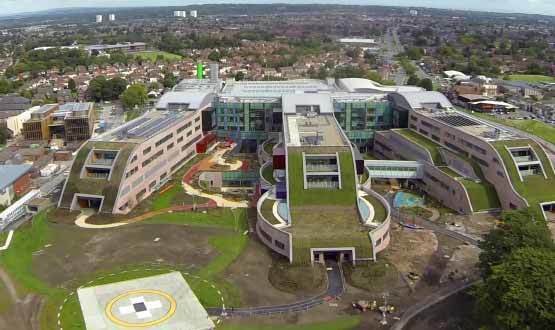While many NHS organisations are still grappling with shifting their core systems into the digital age, developments at Alder Hey Children’s NHS Foundation Trust point to a future where big data and “cognitive programming” will inform nearly every health decision.
The trust has entered into a multi-year collaborative programme with Hartree Centre, which will use IBM’s artificial intelligence programme Watson to create what they have labelled the “first cognitive hospital” in the UK.
In the United States, Watson’s ability to understand and respond to natural language questions by drawing on a massive trove of data has already been used to support clinical decision making.
In April 2015, IBM also launched Watson Health, a unit aimed at working with doctors, researchers and insurers sift through masses of “masked” personal health data to gain new insights.
But for now the Hartree Centre, which was set-up as part of the Science and Technology Facilities Council to accelerate the application of high performance computing, is starting small, and using the programme to help children at the Alder Hey hospital who are worried about their treatment or stay.
Lee Hannis, business development lead at the centre, said in the next few months Watson will be trained up on the hospital existing literature. It will also analyse feedback provided by patients, with their consent, about their experience on everything from hospital food, to parking, to their anxiety about treatment.
It is hoped that by the end of the year, a newly informed Watson be available through a phone or tablet app, to answer patient questions on demand, whether they concern fears about treatment or just a reminder about an upcoming appointment.
The responses could range from a text response to a video explaining what to expect from an operation.
“A lot of clinician’s time is taken up by questions that the patient really could have asked before time,” Hannis said. “When children come to hospital it can be a really anxious time for them. This allows these children to ask some simple questions ahead of time.”
Based on these interactions – such as how helpful the patients found the information and the tone of the conversation – Watson will continue to refine its response and feed insights about these interactions back to clinicians, providing further opportunity to improve care.
Iain Hennessey, a paediatric surgeon and innovation director at Alder Hey, said reducing patient anxiety ahead of appointment it could help “get them better and home faster”.
Hannis said initially the programme would not be linked into the hospital’s existing information systems; drawing on publicly available information, not patient’s personal medical records.
But Hannis said eventually it was hoped the programme would have wider access to hospital’s existing information systems, allowing it help not only patients but support clinical decision making through using patient’s individual records in concert with a huge body of clinical literature.
“The hospital will recognise a patient, where they are, and put clinicians in the most informed position possible.”
The programme could also eventually use this aggregated data to pick up trends, problems, and identify patients for clinical trials.

